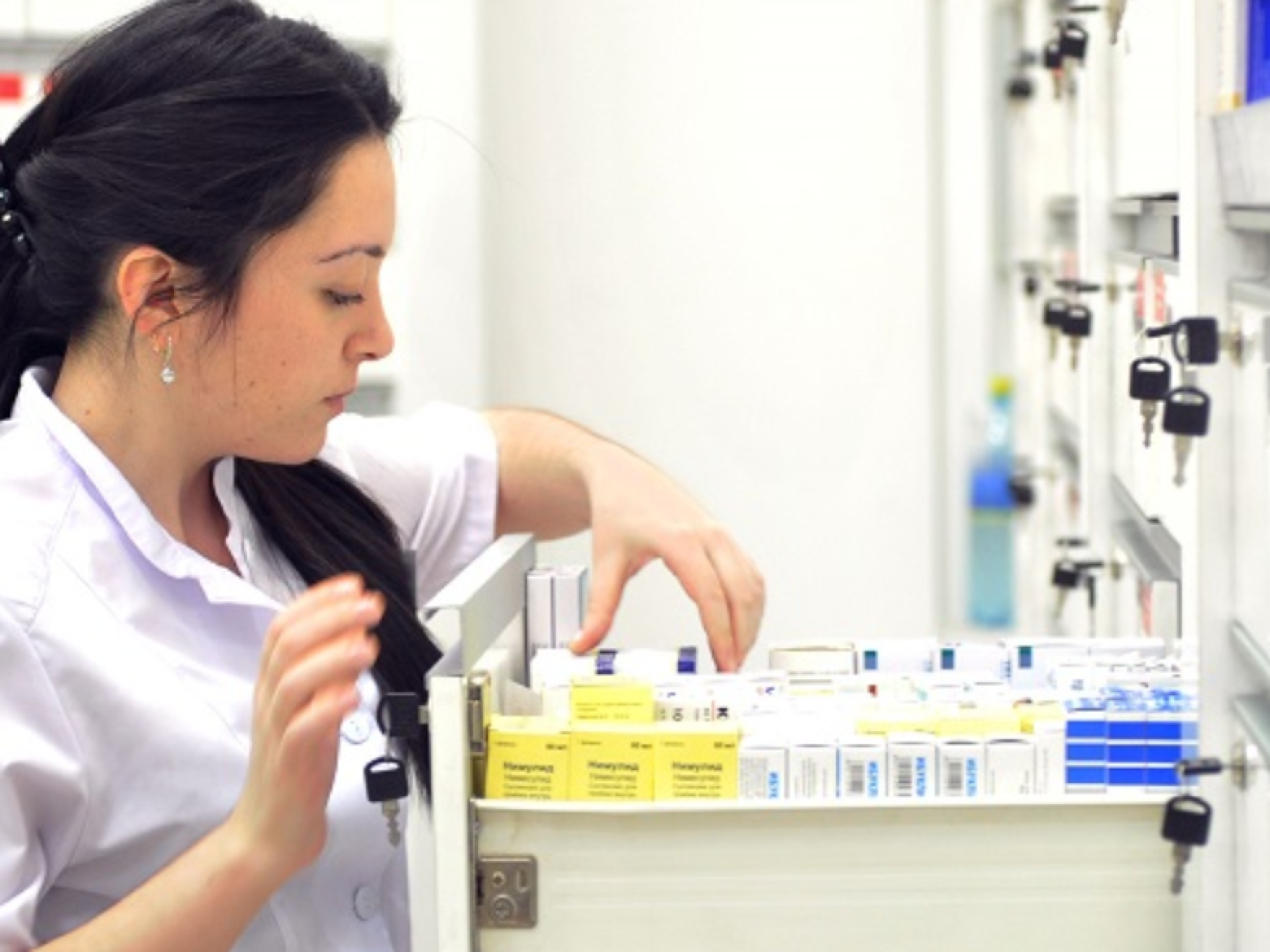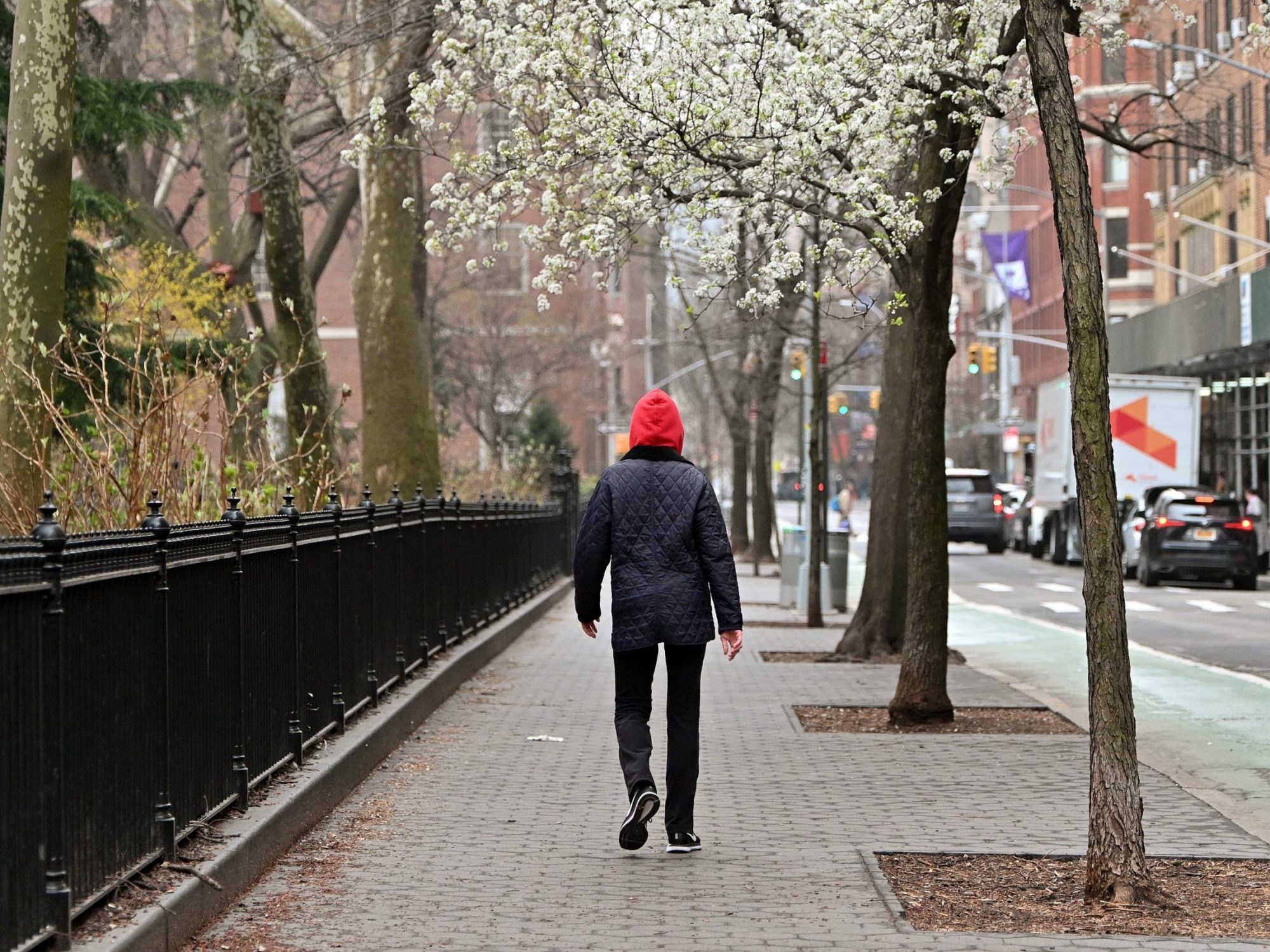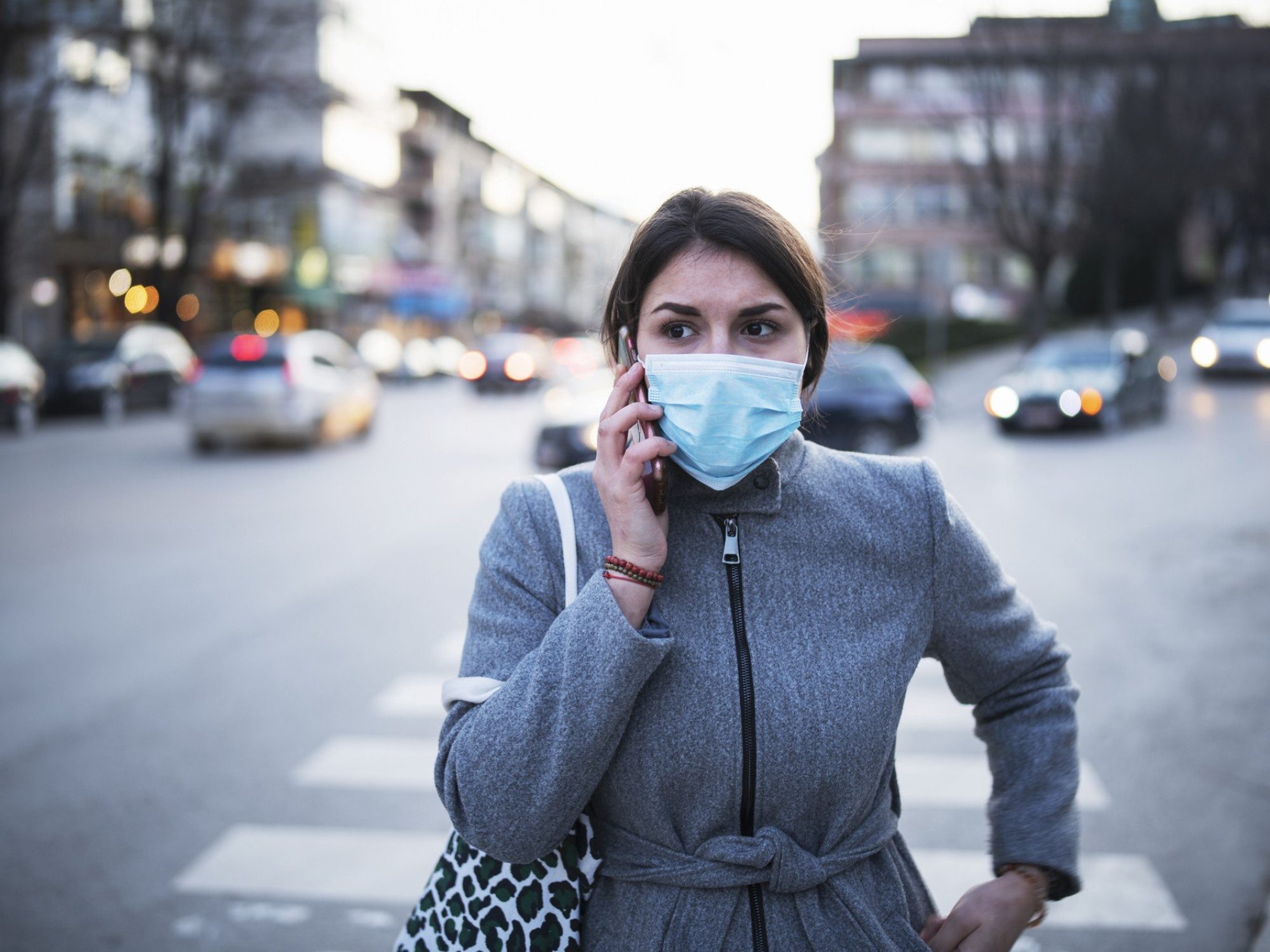They’re tending to others while trying to stay healthy themselves. Here are the best ways to show your support.
Tina Caamano and her 83-year-old diabetic father developed fever, difficulty breathing, and cough at the same time. At the advice of her dad’s doctor, she called 911 — and the two shared an ambulance to the hospital emergency room, while Caamano’s 82-year-old mother stayed home by the phone. After nearly an entire night in the ER, during which time her dad got a room but Caamano was parked in the hallway, the two were tested (tests for both came back positive) and sent back home. Caamano, who also has asthma, sequestered herself on the second floor, while her mother and father kept to the first floor.
For Caamano, who considers herself the caregiver of the household, her incapacitation was a shock. “Before we got sick, I had made sure my freezer had everything we needed,” she said. “We had paper towels, toilet paper, Tylenol, I had all my parents’ medications delivered early.” But nothing could prepare her for being stuck upstairs, weak, for 15 days while her mom managed her dad’s care all by herself. If ever Tina Caamano and her parents needed help from friends and family, this was it.
Before Covid-19, we all knew how to support a family member or friend caring for a sick loved one (or more) at home: We brought home-cooked meals, offered to wash dishes and do laundry, or even just to sit with the patient so the caregiver could get out to the movies or the gym.
But Covid-19 has changed all that. As hospitals become overwhelmed, the bar has been raised for just how sick a person has to become to be admitted and treated. People are at home with severe symptoms — confined to a room in their home, barely able to breathe, and often unable to eat or muster enough energy to stand. And their at-home caregivers are dealing with the extra physical and emotional strain of trying not to get sick themselves and protect other household members from the disease, all while remaining socially distant from the friends, neighbors, and extended family who could otherwise be giving them much-needed support.
“Besides sheer exhaustion, there are huge mental and physical health ramifications when caregivers don’t have support,” says Matt McCabe, managing director for LotsaHelpingHands.com, a care coordination platform that connects those in ongoing or acute need with support from friends and family. “In this time of isolation, it can be even harder.”
For those concerned about these caregivers and patients, it might seem like there’s no way to support them while practicing social distancing, and this is certainly an unprecedented situation. “There is no expert we can go to right now who will say, ‘last time I went through a global pandemic, this is what worked,’” says Rachel Wright, MA, LMFT, a New York City therapist who runs virtual pop-up support groups for people coping with social distancing. “But we can each think about what we would have done before Covid-19, and then adapt it to current health and safety guidelines.” So instead of letting yourself in and setting the table with that lasagna you made for the caregiver and family, for example, leave dinner at the front door with a note.
Not into casseroles? Not a problem. Caamano, McCabe, Wright, and other experts, caregivers, and patients have plenty of ideas for how you can show your support right now.
See a need and fill it
Food is appreciated. Toilet paper is a necessity. But what stuck out for Tina Caamano during the nearly three weeks she was bedridden with Covid-19 were the little things she didn’t even know she needed — but that others did.
Neighbors in her New Jersey town texted Caamano after not seeing her outdoors, and began dropping off food and other household supplies. Her brother also made regular doorstep visits. One neighbor, a nurse, offered to bring over a nebulizer to help Caamano with her breathing — something she didn’t even know would help. “She texted every day to check up on me,” she says.
Another neighbor noticed that the grass was overgrown in the front and back yard and sent her son over to mow it, without being asked. “Every single one of my neighbors, they’re amazing,” she says.
When Kelley Schultz and her husband both developed Covid-19 symptoms at the same time, the couple isolated themselves in two different bedrooms of their suburban New Jersey home. “We had fevers, coughing, we couldn’t eat, couldn’t stand up, we just lay in bed,” Schultz recalls. “We were barely able to drink water and Gatorade.” Their 14-year-old son had to fend for himself.
“He is somewhat self-sufficient with meals,” Schultz explains. “Like, he can make himself a bagel with Nutella. He’d come to the kitchen and get food, but otherwise stayed holed up in his own bedroom.” Under different circumstances, family friends might have invited the boy to stay at their house until his parents recovered. But not now.
Instead, friends cared for Schultz’s son from afar. “People were amazing,” Schultz explains. “Early on, friends reached out and said, ‘We’re ordering food, can we pick up a meal for Ian?’ They dropped off his ravioli on the front porch. I couldn’t get out of bed and make food for him, but he had a hot dinner that night.” Knowing that others were looking after her son gave Schultz peace of mind as she focused on recovery.
Reach out
People are often hesitant to check in when friends and family are going through something difficult because they don’t want to intrude or say the wrong thing. But even a quick text or email can mean the world, says McCabe. “Share a quote, or something meaningful to you, maybe a bit of spiritual encouragement,” he says. “These are little things with a big impact — it’s a reminder to someone that they are loved.”
Even if you’re not normally on a text or email basis with someone, says Wright, that gesture can still mean a lot, especially now. “Just acknowledge that it’s unusual so it’s not uncomfortable or awkward,” she says. “Say, ‘I know we haven’t talked in a few years, but we’re in a pandemic and I was thinking about you and wanted to check in.’”
Depending on where the patient is in their recovery, it can also be an incredible help to both them and their caregiver if you reach out to them directly, says Karl Pillemer, PhD, a Cornell University gerontologist. “By connecting with a bored or lonely patient through a video call, you’re helping the care recipient stay occupied,” he says. “It also gives the caregiver time to do something to relieve their own stress.”
Coordinate efforts
When it comes to outside help, don’t make the caregiver do the coordinating — it becomes one more to-do for them to manage, says McCabe. Instead, use shareable tools like Lotsa Helping Hands or even Google Docs to keep a running list of needed grocery items, so that others can check it, see what the caregiver needs, and pick up what they can when they’re out shopping. Once the item is purchased, you can cross it off the shared list.
Really listen
Right now, like any of us, caregivers might be feeling fear, anxiety, stress — or all three, says Wright. “With Covid-19, a fear may be that your partner will need to go to the hospital and there might not be enough beds. An anxiety might be the worry that they might die, or how this will affect your finances in seven months. What we do to support a caregiver depends on what they’re feeling.”
So listen to their concerns, says Wright. “If a caregiver is doing a lot and feeling stressed, perhaps bringing lasagna is the best move. If they’re feeling fear or anxiety, talking might be more helpful. Unless their anxiety is ‘I don’t know how we will eat tomorrow,’ a lasagna probably won’t help.”
Offer choices
Even in the worst of circumstances, it can be hard for people to ask for help. Rather than ask generally, “Is there anything I can do?” try suggesting a few different ways you can help and asking the caregiver to pick, says Wright. “Say something like, ‘I’m happy to drop off food or leave wine outside — whatever would be most helpful to you,’” she suggests. “Ask them to choose.”
Don’t expect a reply
Caregivers are busy right now. While they may appreciate every call, text, email, and DM, they may not have time to respond to each one individually. Make it easy for them by acknowledging that up-front, agree McCabe, Pillemer, and Wright.
“Say directly, ‘I’m not expecting a response,’” Wright says. “You don’t want to be one more thing on someone’s to-do list when they are already stressed. But you do want them to know you are here for them.”












